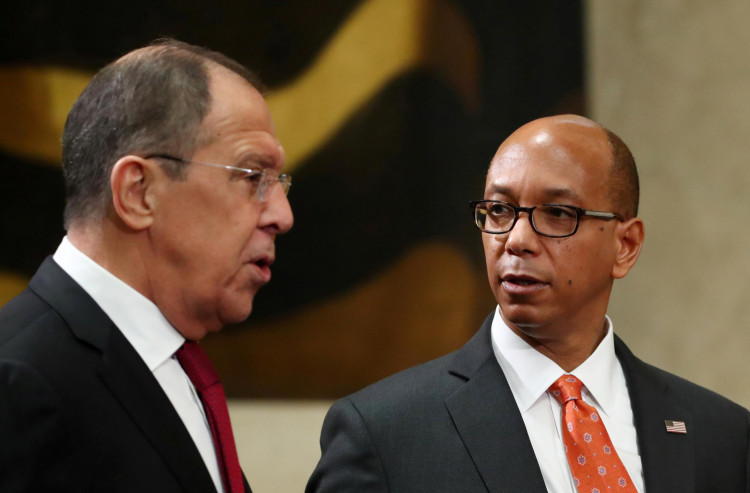The United States has warned Iran not to retaliate against it for an attack on Iran's embassy compound in Syria, which Tehran has blamed on Washington's ally Israel. During a UN Security Council meeting on Tuesday, deputy U.S. Ambassador to the U.N. Robert Wood made it clear that the U.S. had no prior warning of the strike and would not hesitate to defend its personnel if Iran or its proxies resumed their attacks on U.S. forces in the region.
The strike, which occurred on Monday, reportedly killed two Iranian generals and five military advisers, marking one of the most significant attacks on Iranian interests in Syria, where Israel has been conducting a long-running campaign against Iran. Iran's deputy U.N. Ambassador Zahra Ershadi accused the U.S. of being responsible for all crimes committed by the Israeli regime and called on the Security Council to condemn the attack on Iran's diplomatic premises in Damascus.
Current and former US officials told The New York Times that the alleged Israeli strike was a strategic blow to Tehran and may risk an escalation of tensions in the region. Ralph Goff, a former senior CIA official who operated in the Middle East, called the attack "reckless," adding that "it will only result in escalation by Iran and its proxies."
Dana Stroul, the Pentagon's former top Middle East policy official, labeled the attack "the Israeli version of the US strike on Qassem Suleimani," referring to the assassination of the Quds Force chief in Baghdad in January 2020, and warned that it was a "significant escalation and risks tipping an already volatile, unstable region into full-scale war."
U.N. Secretary-General Antonio Guterres condemned the attack in Damascus and called on "all concerned to exercise utmost restraint and avoid further escalation." He cautioned that any miscalculation could lead to a broader conflict in the region, with devastating consequences for civilians who are already experiencing unprecedented suffering in Syria, Lebanon, the Occupied Palestinian Territory, and the broader Middle East.
In the wake of the strike, US troops based in southeastern Syria intercepted an attack drone, marking the first such incident in two months. Iran-backed militias had refrained from attacking US bases after three US troops were killed in a drone strike in Jordan in January.
The strike reportedly killed Gen. Mohammad Reza Zahedi, the IRGC's most senior official in Syria, along with his deputy Gen. Mohammad Hadi Hajriahimi, five other IRGC officers, and at least one member of Hezbollah. Zahedi was responsible for the IRGC's operations in Syria and Lebanon, for Iranian militias there, and for ties with Hezbollah, making him the most senior commander of Iranian forces in the two countries.
Iran and Hezbollah have vowed to respond to the strike on the IRGC generals, with Iranian state TV reporting that the country's Supreme National Security Council met late Monday and decided on a "required" reaction. Iranian President Ebrahim Raisi blamed Israel for the attack, saying the "cowardly crime will not go unanswered," while Iran's supreme leader Ayatollah Ali Khamenei said, "The evil Zionist regime will be punished at the hands of our brave men. We will make them regret this crime and the other ones."
Israel has grown increasingly impatient with the daily exchanges of fire with Hezbollah, which have escalated in recent days, and warned of the possibility of a full-fledged war. While Israel does not, as a rule, comment on specific strikes in Syria, it has admitted to conducting hundreds of sorties against Iran-backed terror groups attempting to gain a foothold in the country over the last decade.






